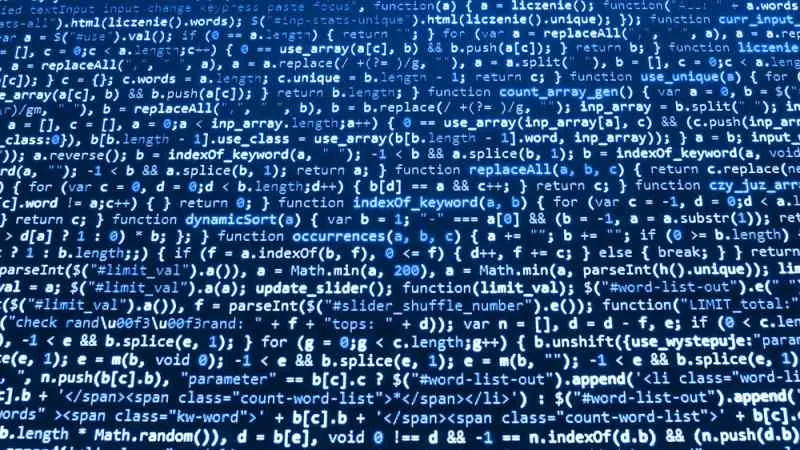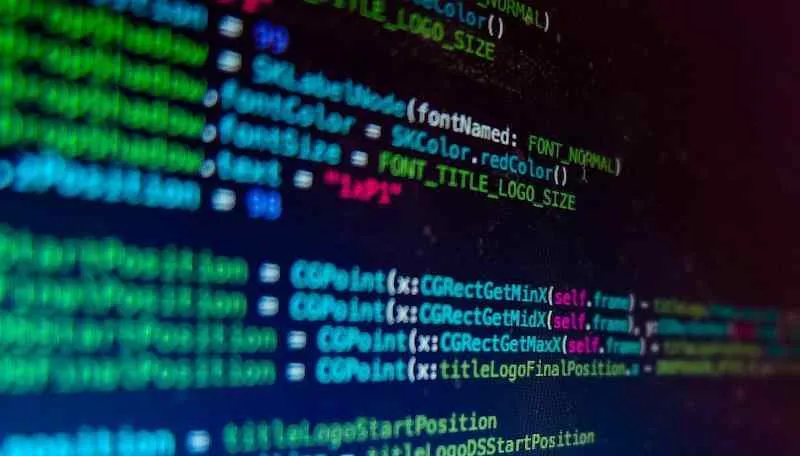Companies often argue they are improved versions while forgetting to mention the real value - freedom.
 Random but inspiring picture of code
Random but inspiring picture of codeimage source
Proprietary software
99% of the software you use is proprietary software. If it is not the program itself, then at least one of the underlying software components will be proprietary software. What is proprietary software? It is pre-installed and pre-configured software from big tech companies. Or rather - corporate spyware. The underlying code is never made public and thus impossible to examine and validate.
If you can put almost anything in your code without it being reviewed, wouldn't it be tempting to peek on the users a little bit?
Indeed it is. When you read on your Kindle, it kindly informs the Amazon Book Store what kind of novels you enjoy. When you indicate your sports interests on Facebook, it gives Instagram a hint about the sponsored content you might like. When you browse Youtube, it gently tips off Spotify on some good songs that could fly your way.
The problem here is that it is almost impossible to stop this perversion, because if you follow the red trail down to it's root, you will find that even the underlying hardware this software runs on is already hijacked. Have a go at this article, which describes how Intel implants a tiny CPU within it's CPU that is able to access your PC even when it's turned off.
Free software
Now that we have examined what makes proprietary software so dangerous, we can look at alternatives: Open-Source software or Free Software. This kind of software is made in collaboration by many awesome programmers world wide. The source code is public and available for anyone to read. Technical readers can even examine it's authenticity and check for traps. Full transparency - no lies, no dirty tricks. Just awesomeness.
What makes software free?
Let's have a look. To be free, software needs to fulfill 4 basic freedoms:
- Freedom to run the software for whatever purpose.
- Freedom to study the code and change it in any way one wants to.
- Freedom to redistribute the exact copy of the code.
- Freedom to redistribute a modified copy of the code.
These 4 freedoms allow for a truly fair collaboration and an authentic product that benefits the entire digital space. If one of these requirements is not met, the developer gains an unjust advantage over the users of his project.
 Sideways photo of font code - it must be complex
Sideways photo of font code - it must be compleximage source
"Open Source" - Not good enough
In the previous paragraph I used the term free software rather than open-source software and with good reason. Big software companies profit from maximum user control. They are not interested in the liberation of the cyber wold and the advancement of free software projects. Mainstream media uses the term "Open-Source" rather than "Free" and addresses issues such as "improvement of quality" and "fixed bugs" when they talk about it. This is to steer away from the true ethical values that these projects contribute to the world - freedom.
Conclusion
This article is inspired by Richard Stallman's presentation. He is a remarkable human being. As an active part of the Free Software Foundation and the founder of GNU and Linux systems, he fights for digital freedom every day. If this topic is of interest to you, you should definitely check his presentation out.
A few points to close this topic:
Don't support big corporations spying on you - Use free software alternatives.
Don't settle for convenience - it is at the cost of your freedom.
Don't call it "open-source" - use the term "free software" instead.
In the end, the question you have to ask yourself is: "Do you want to control the software or do you want the software to control you?"
Information sources:
Richard Stallman presentation
Intel's backdoor
More Articles like this:
Do you want learn how the CIA collects data?(Read article)
Do you want to know how to protect yourself from browser tracking? (Read article)
- Nick ( @cryptonik ) -
